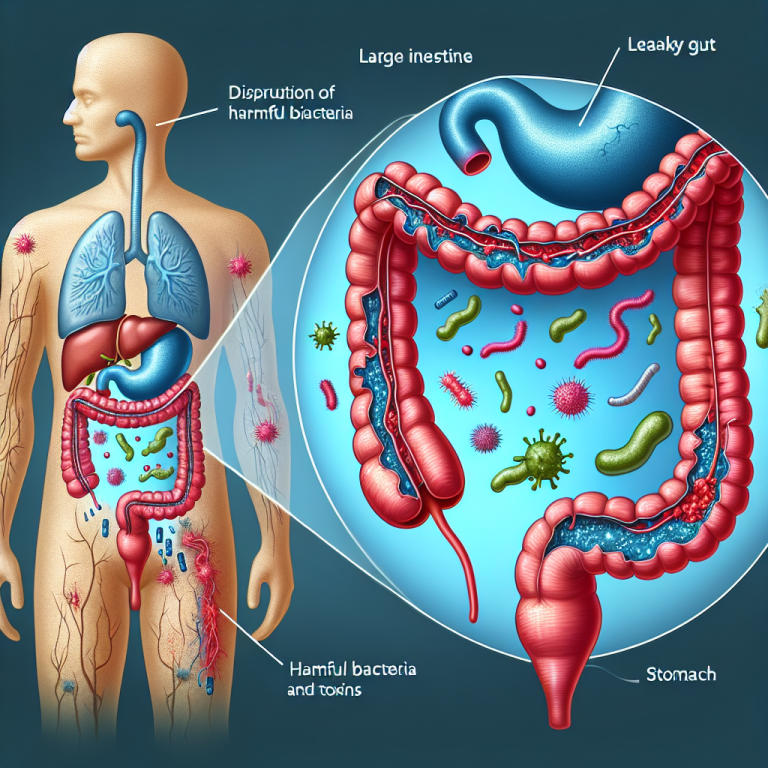When it comes to sweetening our food and beverages, sucralose, commonly known by its brand name Splenda, has become a popular choice for those looking to reduce calorie intake and manage sugar consumption.
However, recent studies suggest that the benefits of this artificial sweetener may come with hidden costs to our health, particularly concerning our gut biome.
Sucralose is a synthetic compound that, while it tastes sweet, is not metabolized by the body for energy.
This might sound like an ideal solution for sugar replacement, but the body's response to sucralose tells a different story.
Discover Your Toxic Burden !

With about 100,000+ toxins in our world, our livers simply can NOT keep up with the onslaught and are overflowing with waste which is stored in our fat tissues.
We experience unpleasant symptoms of grogginess, low energy, weight gain, and much more.
Take action to remove your toxins. Start with this quiz !
Research indicates that sucralose can have a detrimental impact on the microbial community in the gut, which is essential for digestion, immune function, and overall health.
The gut biome is a complex ecosystem made up of trillions of bacteria, both beneficial and harmful.
A healthy gut biome is characterized by a balance of these bacteria, but sucralose can disrupt this delicate equilibrium.
Studies have shown that sucralose can reduce the number of beneficial bacteria in the gut, which can lead to an overgrowth of harmful bacteria.
This imbalance, known as dysbiosis, can compromise the gut barrier, leading to increased gut permeability, commonly referred to as "leaky gut."
One of the immediate effects of an imbalanced gut biome is bloating, digestive discomfort, and inflammation.
When the beneficial bacteria are diminished, the digestive process is disrupted, leading to gas production and bloating.
Furthermore, sucralose's impact on the gut biome can also interfere with the absorption of certain medications and nutrients, potentially leading to more significant health issues over time.
For individuals with pre-existing digestive conditions, such as irritable bowel syndrome (IBS), the consumption of sucralose can exacerbate symptoms.
The sweetener has been found to trigger IBS symptoms like bloating, gas, and abdominal pain.
This is particularly concerning as many people with digestive issues often turn to low-calorie sweeteners in an attempt to manage their condition.
It's essential to be mindful of the potential long-term effects of sucralose on gut health.
While it may offer short-term benefits in reducing sugar intake, the disruption of the gut biome can lead to digestive issues and may have broader implications for overall health.
Considering natural sweeteners or reducing sweetener use altogether might be a healthier choice for maintaining a balanced gut biome and ensuring long-term well-being.
Stevia is a much more natural & safer alternative.
Personally, I would rather have sugar or honey and the calories than sucralose.
As consumers, it's important to stay informed about the ingredients in our diet and their potential impacts.
By choosing our sweeteners wisely and paying attention to the signals our bodies give us, we can take proactive steps toward nurturing a healthy gut and a vibrant life.
Here are only a few of the several research studies on the risks of sucralose…..
Sucralose administered in feed, beginning prenatally through lifespan, induces hematopoietic neoplasias in male swiss mice
Sucralose detrimental on gut bacteria. https://www.ncbi.nlm.nih.gov/pmc/articles/PMC3202359/
Sucralose linked to Leaky Gut https://pubmed.ncbi.nlm.nih.gov/18800291/
Sucralose can increase weight gain. https://pubmed.ncbi.nlm.nih.gov/22998340/



